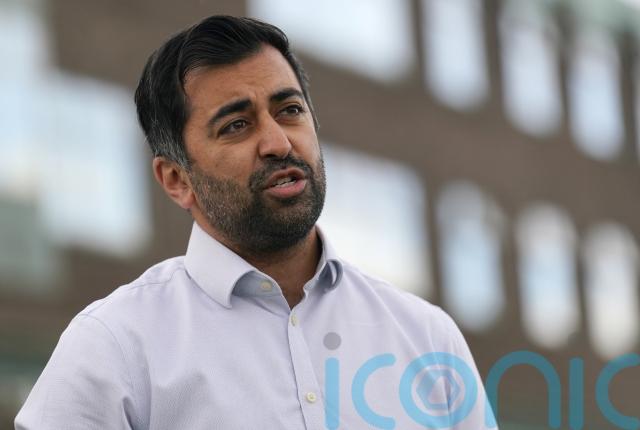
The worldwide monkeypox outbreak is “concerning”, Scotland’s health secretary has said, after the World Health Organisation declared it a global emergency.
There have been 54 laboratory-confirmed cases of monkeypox reported in Scotland since May 23 this year, while elsewhere it has been found in more than 70 countries.
Scotland’s health secretary Humza Yousaf tweeted that the Scottish Government and Public Health Scotland (PHS) have been “working for many months on 4 Nations basis on our Monkeypox response”.
Three of the 54 cases in Scotland have been recorded since Monday July 18, PHS said.

It said that currently most cases in Scotland are in men who are gay, bisexual or have sex with men, and are primarily associated with recent travel to London or Europe.
They are receiving care and treatment, and close contacts of the cases are being identified and provided with health information, advice and, where appropriate, vaccination.
Mr Yousaf tweeted: “While concerning, ScotGovt & PHS been working for many months on 4 Nations basis on our Monkeypox response. Latest update can be found below.
“If you’re concerned about possible exposure/symptoms, contact your GP or sexual health clinic if appropriate.”
PHS said that the wider “pre-exposure programme” has started in some areas of Scotland, with vaccination being offered to some gay and bisexual men at higher risk of exposure and a small number of healthcare workers who work in high-risk settings.
On Tuesday the guidance for close contacts was updated and such individuals no longer need to isolate at home if they don’t have symptoms.
PHS said that monkeypox is generally a mild self-limiting illness, spread by very close contact with someone who is already infected and has symptoms. Most people recover within a few weeks.
Dr Nick Phin, director of Public Health Science and medical director at PHS, said: “The recent change in guidance for close contacts is reflective of what we currently know about the transmission routes of the virus. Predominantly, it is being spread through close skin-to-skin activity.
“The incubation period for monkeypox however is up to 21 days, so if you are aware that you are a close contact of someone who has tested positive, please do take additional precautions during this time.
“These include avoiding close skin-to-skin contact with others, such as hugging, kissing, or sexual contact, even if you don’t have any symptoms. If you do develop symptoms, you should self-isolate immediately and contact your GP or local sexual health clinic.”
While concerning, ScotGovt & PHS been working for many months on 4 Nations basis on our Monkeypox response. Latest update can be found below. If you're concerned about possible exposure/symptoms, contact your GP or sexual health clinic if appropriate.https://t.co/r9pl0vOohp https://t.co/0dsfK8SlKR
— Humza Yousaf (@HumzaYousaf) July 23, 2022
PHS said it continues to work with the UK Health Security Agency, Public Health Wales and Northern Ireland HSC Health Protection Agency to monitor and respond to potential and confirmed cases of monkeypox in the UK.
Declaring a global emergency means the monkeypox outbreak is an “extraordinary event” that could spill over into more countries and requires a coordinated global response.
A global emergency is the World Health Organisation’s (WHO) highest level of alert, but the designation does not necessarily mean a disease is particularly transmissible or lethal.
WHO’s emergencies chief, Dr Michael Ryan, said the director-general made the decision to put monkeypox in that category to endure the global community takes the current outbreaks seriously.
The WHO previously declared emergencies for public health crises such as the Covid-19 pandemic, the 2014 West African Ebola outbreak, the Zika virus in Latin America in 2016 and the ongoing effort to eradicate polio.
Subscribe or register today to discover more from DonegalLive.ie
Buy the e-paper of the Donegal Democrat, Donegal People's Press, Donegal Post and Inish Times here for instant access to Donegal's premier news titles.
Keep up with the latest news from Donegal with our daily newsletter featuring the most important stories of the day delivered to your inbox every evening at 5pm.